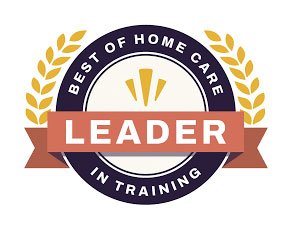Caring for someone in late-stage illness is loving and meaningful, and it can also be exhausting. If you are noticing growing stress, sleep loss, or resentment, you are not failing. You may be experiencing caregiver burnout, a common condition that improves with support. This guide gives you a gentle self-check, simple next steps, and a clear look at hospice respite care, including how Medicare coverage works for families in Alpharetta, Fulton County, and across Metro Atlanta.
Key takeaways

- Burnout develops when caregiving demands outpace your emotional, physical, and practical capacity. It is common, and it is treatable.
- Medicare covers short-term hospice respite care in a Medicare-certified facility, typically up to five consecutive days at a time, so you can rest while your loved one continues receiving care. A small coinsurance may apply.
- You do not need to wait for a crisis. Asking for respite early protects your health, improves your loved one’s safety, and helps you sustain care at home.
What Caregiver Burnout Looks Like
Burnout is not a lack of love; it is a sign that your system is overloaded. Common signs include constant tiredness, irritability, trouble sleeping, headaches or body aches, anxiety or low mood, loss of interest in things you used to enjoy, and social withdrawal. You may also notice skipped meals, skipped showers, or difficulty concentrating. If any of this sounds familiar, you are not alone.
Why late-stage illness raises the risk
As needs increase, you may be managing complex symptoms, medications, transfers, safety issues, and more frequent nighttime care. Even the most dedicated caregivers need predictable breaks to rest and reset. That is exactly what respite care is designed to provide.
A Gentle Self-Check you Can Do Today
Use the questions below to take a quick snapshot of how you are doing. If you answer yes to three or more, it is time to plan support.
- In the past two weeks, have you felt exhausted most days, even after sleep?
- Are you getting less than six hours of sleep on most nights, or waking repeatedly to provide care?
- Do you feel more irritable or impatient than usual?
- Have you lost interest in activities or connections you normally enjoy?
- Are headaches, back pain, or stomach issues showing up more often?
- Do you skip meals or personal care because there is not enough time?
- Do you feel alone, or like no one can step in so you can rest?
Each yes is a nudge to take action. Even small changes, for example one protected nap or one evening off, can lower stress and improve mood. If you are caring in Alpharetta or Fulton County, your hospice care team can help you build a realistic plan that fits your home routine and your loved one’s needs.
What Hospice Respite Care is, and How it Works
The purpose
Hospice respite care gives family caregivers a short, planned break. Your loved one stays in a Medicare-certified facility, such as a hospice inpatient center, hospital, or skilled nursing facility, and continues receiving hospice care. You use that window to sleep, recover, visit family, or simply breathe.
How long it lasts
Medicare typically allows up to five consecutive days per respite period. Respite can be used occasionally when you need it, for example to prevent burnout, to recover from illness, or to attend an important family event.
Costs to expect
Under the Medicare hospice benefit, families may owe a small coinsurance for inpatient respite, capped so it does not exceed the inpatient hospital deductible for that year. Your hospice care team will explain any out-of-pocket amounts before admission.
Where care happens
Respite is provided in a Medicare-approved setting. Your hospice coordinates the bed, transport if needed, the medication list, and the plan of care, so your loved one stays safe and comfortable while you rest.
When to Ask for Respite
You can request respite even if there is no crisis. Consider it when you notice:
- Unrelenting fatigue or sleep disruption, especially from nighttime symptoms
- Frequent tears, anger, or a short fuse that feels unlike you
- Safety concerns, for example dozing during the day, missed medication times, or difficulty with safe transfers
- An upcoming medical appointment or life event you cannot miss
- A sense that you are caring on fumes, and a short reset would help you continue safely at home
Hospice agencies in Metro Atlanta encourage planned respite to protect caregiver health. By spelling out the how, where, and coverage details, your care team makes the process clearer and easier to use.
What to Expect Before, During, and After a Respite Stay
Before
- Tell your care team that you need time to rest.
- Share preferred dates, special needs, and any safety concerns.
- Ask about the nearest Medicare-certified options and transportation.
- Review medications, equipment, and personal items to send.
During
- Your loved one receives hospice care in the facility.
- The care team manages medications, comfort, hygiene, and meals.
- You use the time for sleep, medical visits, or family needs.
- Your hospice care team checks in, and you can call for updates.
After
- Your loved one returns home to routine hospice care.
- The team addresses any changes noticed during the stay, and updates the care plan if symptoms or equipment needs have shifted.
This cycle helps many families sustain home care longer, and it reduces emergency room visits caused by caregiver exhaustion.
Respite vs. Other Hospice Supports That Prevent Burnout
Routine home care brings care team visits, aide support, social work, chaplaincy, medications, and supplies to your door. This foundation eases daily burden. If symptoms intensify, general inpatient care can be used to stabilize complex pain or distress. When symptoms spike at home and require short-term, around-the-clock clinical support, continuous home care may be appropriate. Your care team recommends the right level, then adjusts as needs change. Respite, in contrast, is specifically for caregiver relief, while your loved one’s comfort continues uninterrupted.
A Practical Plan to Lower Stress This Week
You do not need to fix everything at once. Pick one step and start.
- Name your limit
Say out loud what is hardest right now. Night waking, heavy transfers, behavioral symptoms, or medication timing. Naming it helps the team target the right solution. - Build one protected break
Ask your hospice care team about a brief respite stay, or schedule one half day of sitter coverage with family. Put it on the calendar. Treat it like a medical appointment. - Simplify your care routine
Group tasks, prepare medications in advance, keep the most used supplies within reach, and ask for equipment that lowers strain, such as a hospital bed or bedside commode. Your hospice can provide and teach safe use of durable medical equipment. - Sleep first
Aim for one longer stretch of sleep, even if that means a late morning nap after the aide visit or a short respite stay. Sleep is the fastest way to reduce irritability and improve concentration. - Accept help without apology
If someone offers to deliver meals, do laundry, or sit for two hours, say yes. Your energy is a clinical resource for your loved one’s safety.
How This Works for Families in Alpharetta and Metro Atlanta
If you live in Alpharetta, Fulton County, or nearby counties we serve, your care team will help coordinate the details. That includes finding an available Medicare-certified respite bed, arranging transport when needed, and making sure your loved one’s comfort plan follows them. You will know the dates, costs, and what to bring. Your care team remains your point of contact throughout the stay.
When Burnout is Severe
If you feel hopeless, if you cannot ensure safety at home, or if you have thoughts of self-harm, tell your hospice care team immediately or call 988 in the United States for immediate help. Your team can escalate support and discuss safe short-term options while keeping your loved one’s comfort at the center.
Frequently Asked Questions
- Can I request respite more than once?
- Yes. Medicare allows respite on an occasional basis, typically up to five days per period. Your care team will work with you to schedule it when you need it most.
- Will my loved one lose hospice services during respite?
- No. Your loved one continues to receive hospice care in the respite setting, including symptom management, medications, and personal care.
- What if I need help at night but do not want a facility stay?
- Tell your team. Depending on symptoms, continuous home care or other support may be appropriate for short periods to manage a crisis at home.
Get Hospice Respite Care Support in Alpharetta & Fulton County
Experiencing caregiver burnout in late-stage illness? If you need hospice respite care, compassionate end-of-life care at home, and reliable hospice services in Alpharetta or Fulton County, our dedicated hospice care team will guide you with symptom management, practical resources, and a plan that fits your family. Take the next step: call our care team at (470) 395-6567 for support today.




